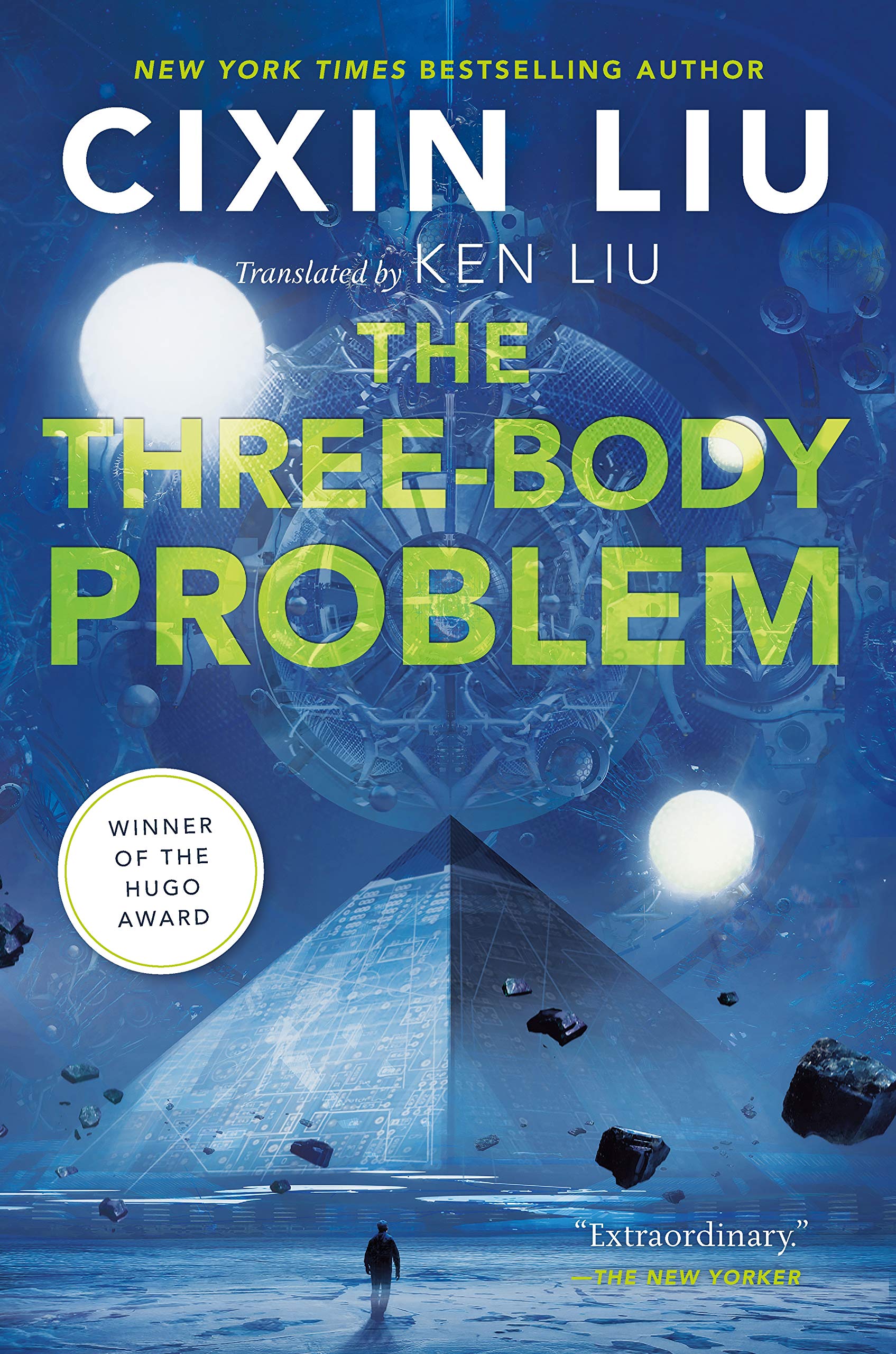M@ reviewed Three-Body Problem Series by Ken Liu
Review of 'Three-Body Problem Series' on 'Goodreads'
1 star
The only three interesting words in this book are the title. The title describes a pretty keen theory, which directly addresses the Fermi Paradox. When I read the description of the theory, I should have thought "hey, that's pretty cool," but I didn't, because it was so poorly described that I actually thought "wait, that doesn't make sense" and had to re-read it.
What I re-read was something on the order of fifteen pages of dialog between the book's zero-dimensional "protagonist" and the book's only one-dimensional character, the sarcastic comic relief. This conversation is done in the dark, as per the text:
"Where are we going?" [1-D comic relief] asked.
"To the darkest place."
The only light in this place is the cigarettes they decide to smoke. Humanity, you'll be shocked to hear, is in a very dark patch, so I think the author is using this as a metaphor. I'm not sure, though, because the author's attention now turns to their smoking. After a couple of pages of preamble, we get this:
"Give me a cigarette." [0D] groped about in the dark for a while before taking the cigarette from [1D]'s hand. When [0D] next spoke, [1D] realized that he had moved to a spot three or four meters away. "We need to increase the distance to make it feel more like outer space," [0D] said. Then he lit the cigarette by twisting its filter, and [1D] lit one of his own. In the dark, two tiny red planets stood in distant opposition.
There are then three pages of dialog. You're never going to believe this, but [0D] does most of the talking, in a factual, authoritative tone. [1D] asks short questions to be refuted or incorporated into the infodump, as needed. Then, a break.
The flame on [0D]'s side rose up and moved back and forth. Evidently he had gotten up and was pacing.
Two more pages, then...
[1D] took a drag on his cigarette, and his contemplative face emerged from the darkness for a moment.
This continues on for...a while. I'll leave you with the...best?...of them:
The balls of flame brightened and their faces emerged from the darkness like the gods of this simple universe, deep in thought.
Sure thing, big fella. Eventually, we reach the end of this interminable sequence, and I finally grasped the crux of their argument, and then I did have my little moment of illumination (almost as if I'd read it on the face of my conversation partner as it was briefly lit up by him taking a drag on his cigarette.)
And here's the kicker: the sequence I just described is, in my opinion, the best part of the book. There's a ton of detritus floating in the space near this idea. There are many pages dedicated to the notions of "wallfacers", who apparently exist to put forth ideas that the author was going to use for the plot but then discarded, many many pages about the wildly over-simplistic politics of Earth in multiple eras, and perhaps the most boring space battle I've ever read. It's incredibly dull, but at least you'll find out how many meters apart each ship was as it was destroyed.
The author's social commentary is almost unbearable, but at least for most of that he tells us and doesn't show us, because I'm fairly certain that him showing us would go well past unbearable.
The worst of the book, though, is an incredibly long segment where our protagonist is challenged by his girlfriend-at-the-time to imagine his romantic ideal. He does so, and not in a way that's all that flattering to womankind. (She's gotta be smart, but not too smart, look good in firelight, and apparently attracted to narcissistic sociopaths. Etc. Etc.) He then starts to vividly imagine her, and fantasize about her all the time, and tell us about (too) many of these fantasies which are thank god not in any way sexual. The real girlfriend breaks up with him, and the heartbreak of his unrequited love for his imaginary woman turns him into an inveterate asshole womanizer.
He then wins the narrative lottery and is put in a position to request anything he wants. He gets himself a nice villa with a thick wine cellar and a big fireplace, and then commands that this woman be brought to him (squicky!). The 1-D comic relief, who has been hired to be the narrative Jeeves, then goes out and brings him (squickier!) the comic relief's very own niece (squickiest!). I'd have wrapped that in a spoiler tag, but there's no suspense to it, it's just spelled out in the text in a phone conversation. Protagonist and dream woman then go to town on each other, have a daughter, and then the dream woman and daughter are taken away to be used as a mild macguffin for the rest of the book. I've seen other reviewers call this major facet of the story misogynist (I'm fairly sure I agree), and then commenters defend the book by saying that you don't read Liu for his characters. Truer words.
So, yes, in conclusion, I would maybe recommend not reading this book. Or standing too close to it in a bookstore. Oh, and I'm going to wrap the following in a spoiler tag: it turns out the way to prevent an alien invasion is by threatening mutually assured destruction! Who could have seen that coming? and reuse a joke I once made about the author doing more to spoil the book than any mere mortal could.

